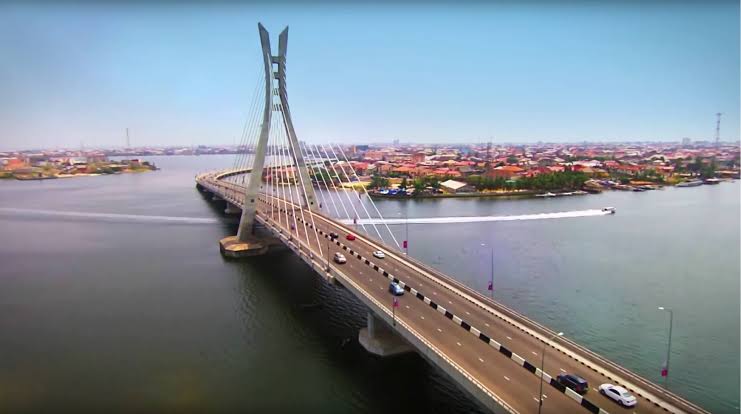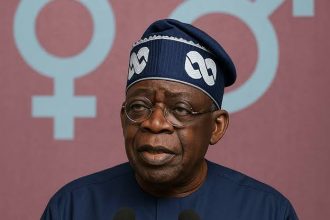When conversations about Nigeria’s development arise, Lagos State often emerges at the forefront. With its bustling economy, international recognition, and infrastructural advancements, many wonder whether Lagos owes its prosperity to the fact that it was once the Federal Capital Territory (FCT).
On December 12, 1991, General Ibrahim Babangida officially moved Nigeria’s capital from Lagos to Abuja. At that time, Lagos was already a major urban hub, but the city had limited infrastructure compared to what exists today. Importantly, many of the iconic projects and innovations we now associate with Lagos were developed long after the capital relocation.
This article will explore the question: Is Lagos prosperous simply because it was once Nigeria’s capital? Or is its success rooted in visionary leadership, private sector partnerships, and long-term planning?
We’ll compare Lagos with Abuja, analyze the role of governance, and examine lessons other Nigerian states can draw from the Lagos experience.
Lagos in 1991: What Did It Look Like?
In 1991, Lagos faced overwhelming urban challenges:
- Inadequate transportation infrastructure
- A rapidly growing population
- Limited energy capacity
- Weak urban planning
At the time, Lagos had no:
- Blue, Red, or Green Line Metro railway
- Bus Rapid Transit (BRT) lanes
- Lekki Free Trade Zone
- Eko Atlantic City
- Lekki-Ikoyi Link Bridge
- Local Council Development Areas (LCDAs)
- Millennium schools
- Independent Power Plants (IPPs) such as those in Alausa, Akute, Lagos Island, Marina, and Lekki Peninsula
Fast forward to today, and Lagos has transformed itself into one of Africa’s largest and most dynamic megacities. This begs the question: If Lagos stopped being the capital more than three decades ago, why is it still growing at such an extraordinary pace?
The Growth of Lagos After 1991
The Lagos of today has been built largely through strategic public-private partnerships and visionary leadership. Some of the notable achievements include:
1. Transport Revolution
The introduction of the BRT system gave millions of Lagosians access to affordable, efficient transport.
The Lagos Blue Line and Red Line rail projects aim to reduce traffic congestion and connect key parts of the city.
2. Power Generation for Local Needs
Multiple IPPs were established to supplement electricity supply, reducing reliance on the unstable national grid.
3. Urban Development Projects
The creation of the Lekki Free Trade Zone attracted foreign investment.
- Eko Atlantic City was designed to combat coastal erosion and serve as a modern financial hub.
- New bridges, roads, and housing estates opened up previously inaccessible areas.
4. Educational Investments
Millennium schools and other education initiatives expanded access to quality learning.
5. Decentralization of Governance
The creation of Local Council Development Areas allowed for grassroots governance and quicker response to citizen needs.
These projects demonstrate that Lagos did not rely solely on its past status as a capital city but on continuous investment, planning, and execution.
Abuja: The Current Capital, Yet Still Behind
Abuja has been Nigeria’s capital for over 34 years. Despite being designed as a planned city, its pace of growth and development has not matched Lagos.
Why is Abuja, despite having the federal government, embassies, and national headquarters of major organizations, still trailing Lagos in terms of economic activity and infrastructure?
Key Reasons:
1. Leadership and Continuity
✓Lagos has had leaders with long-term development plans, from Asiwaju Bola Ahmed Tinubu to Babatunde Fashola, Akinwunmi Ambode, and now Babajide Sanwo-Olu. Each administration built on the achievements of its predecessor.
✓Abuja’s governance has often shifted due to changes in the federal government and ministerial appointments, making it difficult to pursue consistent long-term strategies.
2. Economic Diversification
✓Lagos is not just a government town; it is Nigeria’s commercial capital. From banking and finance to trade, tech, and entertainment, Lagos generates its own wealth.
✓Abuja remains heavily reliant on federal allocations and public sector-driven activities.
3. Private Sector Partnerships
✓Lagos has leveraged partnerships to fund mega projects like Eko Atlantic, the Lekki Deep Seaport, and independent power plants.
✓Abuja has fewer examples of such collaborations.
Why Lagos Is Prosperous: The Leadership Factor
The prosperity of Lagos can be traced to visionary leadership. Successive governors have focused on:
- Urban Planning: Expansion of roads, bridges, and housing.
- Economic Planning: Creating environments conducive to business, such as the Lekki Free Trade Zone.
- Public-Private Partnerships: Attracting investors to co-fund large-scale projects.
- Institutional Development: Establishing LCDAs to bring government closer to the people.
An important lesson here is that location or historical status does not automatically bring development. It is leadership, vision, and consistent planning that matter most.
Comparing Lagos with Other Nigerian States
To understand Lagos better, let’s compare it with other states:
- Anambra State: Under Peter Obi, investments were made in industries like breweries and education. This approach focused on sustainability and job creation.
- Kano State: Once a major commercial hub, Kano has struggled with infrastructural decline due to inconsistent governance.
- Rivers State: Despite huge oil revenues, infrastructure gaps remain due to mismanagement and over-reliance on federal allocations.
Lagos, by contrast, diversified its economy, built infrastructure, and consistently improved its internal revenue generation.
Lessons Other States Can Learn
1. Visionary Leadership Matters
Lagos shows that strong, forward-looking leaders can transform a state’s economy.
2. Don’t Rely on Federal Allocations Alone
Lagos built its revenue base through taxation and partnerships, reducing dependence on oil revenue.
3. Public-Private Partnerships Work
Projects like Eko Atlantic and the Lekki Deep Seaport were possible because the private sector was brought in as a development partner.
4. Continuity Is Key
Development is not a one-term affair. States must pursue consistent long-term goals beyond electoral cycles.
Is Lagos Prosperous Because It Was Once Nigeria’s Capital?
The evidence is clear: Lagos is not prosperous today because it was once Nigeria’s capital.
If being a former or current capital was enough to guarantee prosperity, Abuja would surpass Lagos by now. Instead, Lagos thrives because of:
- Leadership continuity
- Private sector engagement
- Strategic planning
- Economic diversification
- Smart urban projects
Lagos is proof that development is not automatic; it must be driven by policy, vision, and execution.
Conclusion
When the capital moved to Abuja in 1991, many thought Lagos would decline. Instead, Lagos reinvented itself. Today, its economy is over 12 times bigger than it was in 1991. It has become Africa’s rising megacity, home to innovation, finance, and global investment.
Other Nigerian states must take a cue from Lagos. Prosperity is not about being a capital city. Prosperity is about leadership, vision, and the courage to build.
As the saying goes: Great cities are not born; they are built. Lagos is living proof.












